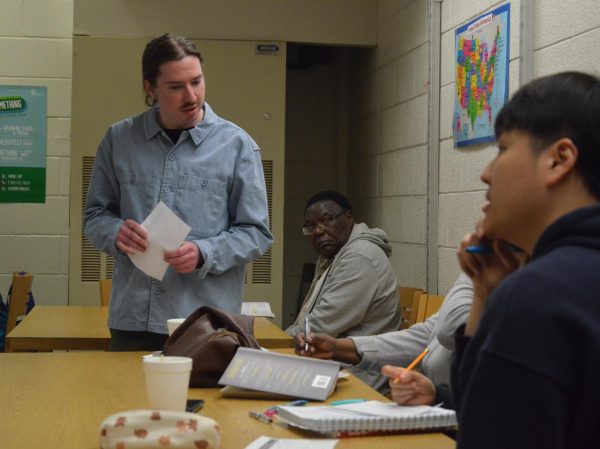Misinformation, performative activism surrounds Willow Project
March 31, 2023
Before President Joe Biden had the opportunity to approve the Willow Project, a social media movement erupted in anger calling for Biden to end it. The movement generated millions of views on TikTok with many people beginning to panic about the environmental and atmospheric consequences of the project.
The Willow Project will harm the environment and will likely cause many disruptions; however, the severity of the project has also been exaggerated online in comparison to the damage people do to the environment and atmosphere every day.
The Willow Project is a major oil drilling project located in Alaska. It will open up 199 new oil wells and will create a federal oil reserve roughly the size of Indiana. Over its 30-year period, the project will also produce around 263 million tons of carbon emissions, as well as harm animal migration patterns through that region.
While this is a major concern, it is not as completely devastating as some people have made it out to be. Fueled by climate change anxiety and misinformation, the project quickly gained attention on social media. The hashtags “StopWillow” and “StopTheWillowProject” generated 370 million and 204 million views, respectively, on TikTok. Rumors of the project causing “irreversible climate change” fiercely spread throughout social media platforms resulting in even more anger and fear.
Teenagers are notorious for not reading the news and relying on social media for information, resulting in many believing the Willow Project rumors, despite no evidence to back them. Instead of addressing or researching the real problems of climate change, or at least the Willow Project, many turned back to social media. Their solution to fix the “irreversible damage?” Reposting and signing petitions.
On Change.org, one petition advocating to stop the project gained nearly five million signatures, yet the project was passed anyway. Petitioning has worked in the past, however, it’s most effective when in conjunction with other forms of protest.
Some of the people who signed these petitions may be unaware of the lack of effectiveness; however, for many others, the signing and reposting is largely performative. When it comes to environmental protection and climate change, performative activism is especially rampant; the Willow Project is a key example.
Many are panicking over the 239 million metric tons of carbon that will be produced over 30 years, but what about the 5,981 million metric tons the U.S. produced in 2020 alone? The ecosystem and Caribou, which are already vulnerable, will be disrupted, but what about the toxic dyes, metals and non-renewable fabrics caused by fast fashion that pollute ecosystems and kill animals every day?
Fury, anxiety and obligation have plagued the Willow Project, but in reality, the real problems, the ones that could cause irreversible damage, are ignored because doing something about them would require actual effort.
Before criticizing Biden and Congress without doing research, many Americans need to look at their own lifestyles. Are three cars really necessary in a four-person family? Do people really have to buy new clothes every month from wasteful fast fashion brands? Can public transportation be utilized more? There are countless ways Americans can improve their carbon footprints.
The government and its programs are largely responsible for the carbon emissions emitted in the U.S., but they cannot be blamed for everything. A good portion of the emissions are because of average Americans. Projects like the Willow Project will not help reduce carbon emissions or benefit the environment, but there are also far more pressing issues involving climate change.
Sustainability is expensive and time-consuming; that is undeniable. It is irrefutable that not all people have the luxury to be as sustainable as possible, nor is it possible to be perfectly sustainable. However, for those with the resources to try, and still choose to only sign petitions and repost occasional environmental problems online, the double standards involving climate change are clear.











